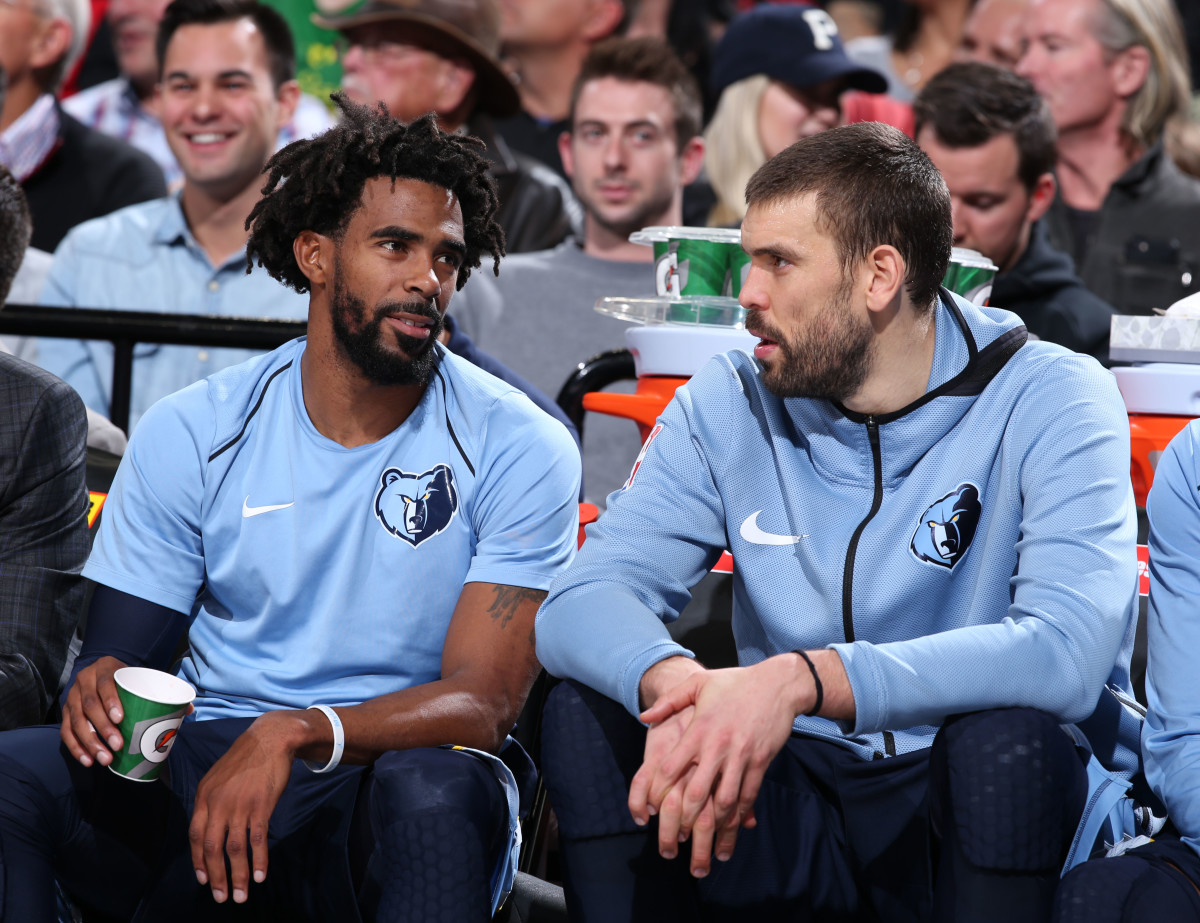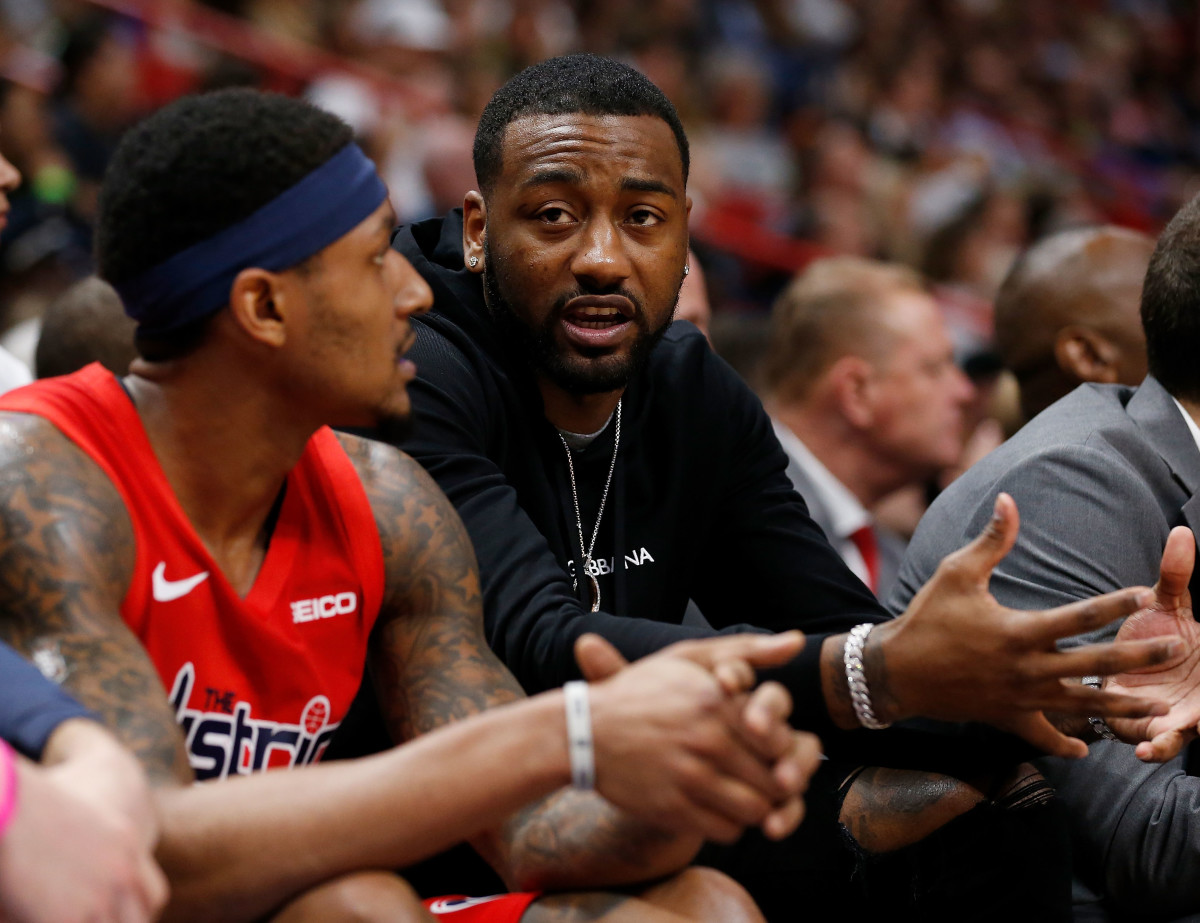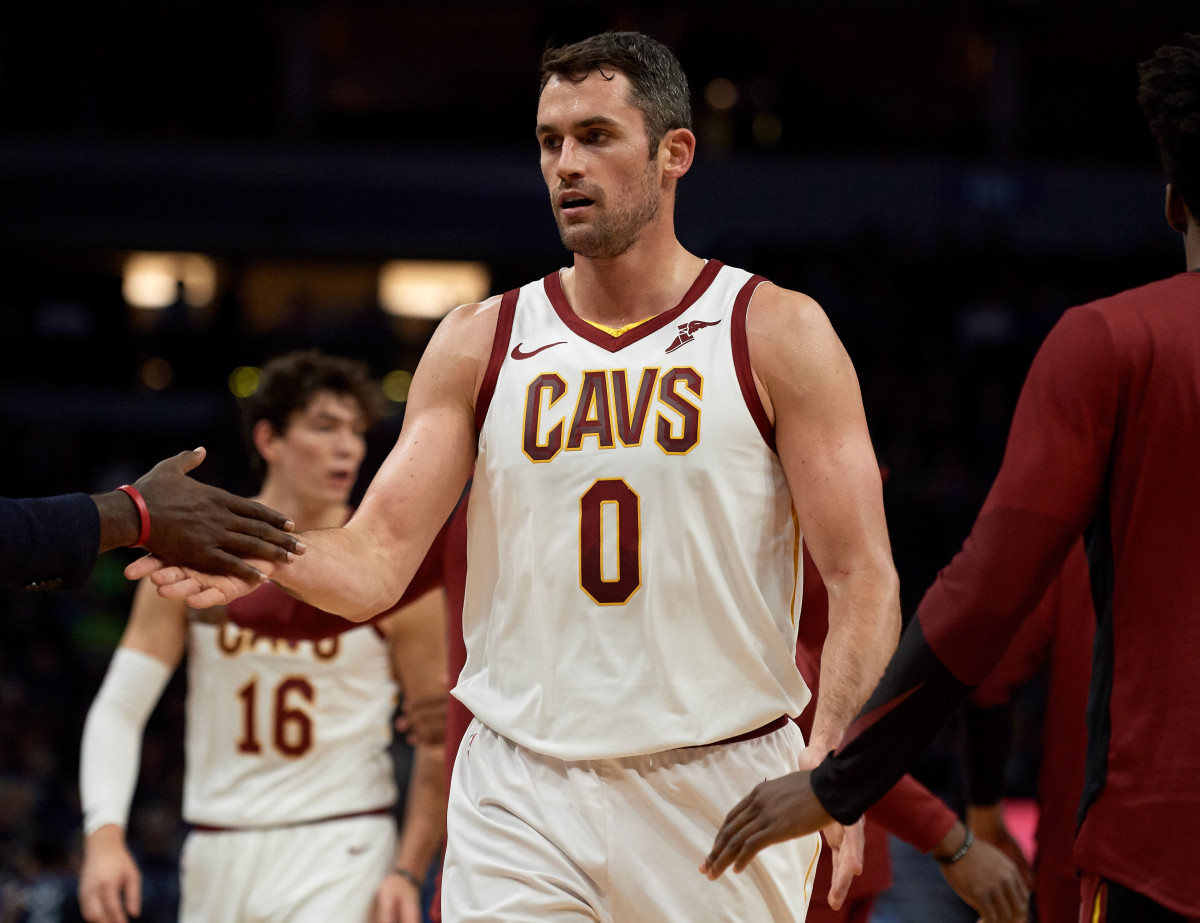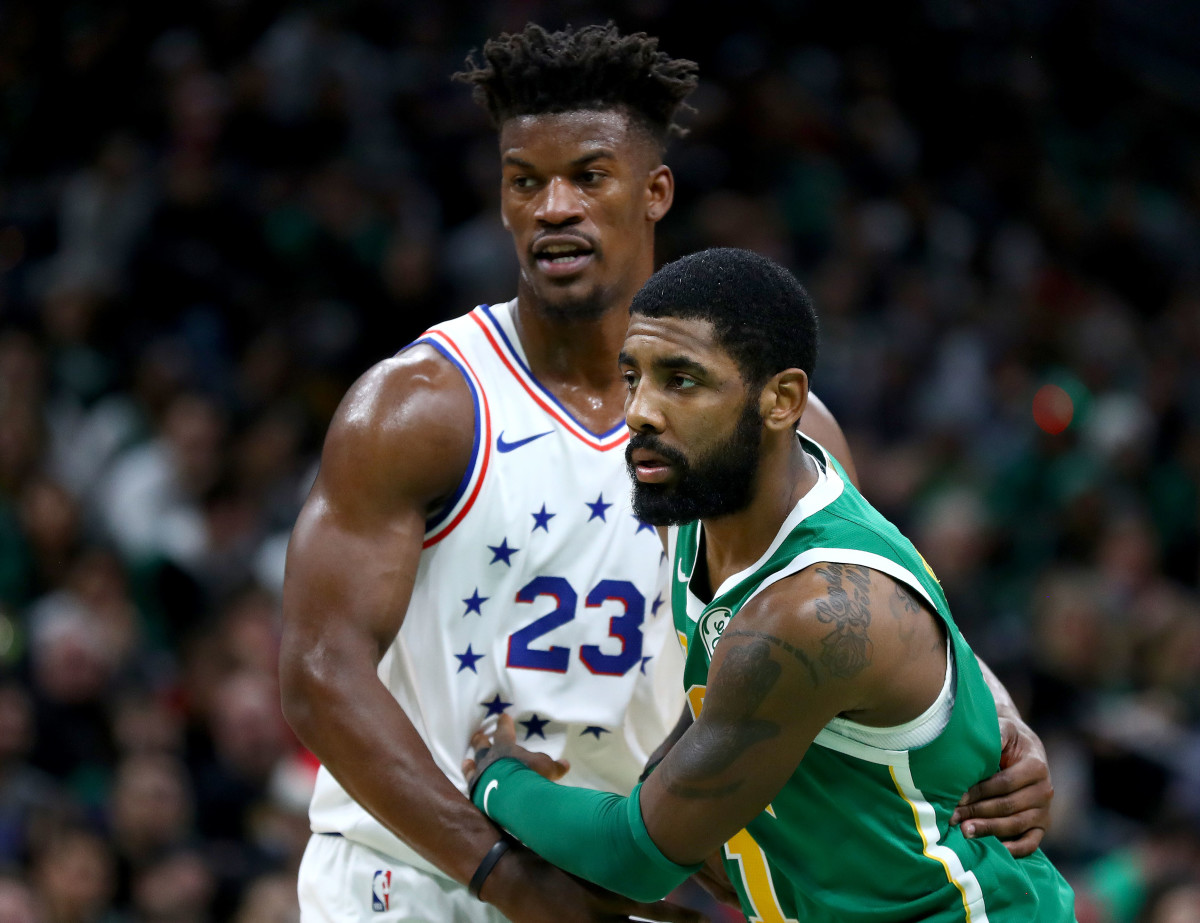Examining the Trade Market for the NBA’s Most Expensive Players

For the NBA’s top players, the league’s salary structure over the last half decade has provided significant incentive to stay at home. With the advent of designated player extensions and supermax contracts, those who sign with their drafted teams receive a sizeable economic windfall, with hometown contracts netting a fifth year and upwards of $40 million. Russell Westbrook received a five-year, $205 million deal from Oklahoma City in September 2017. The final year of his contract in 2022-23 is worth $47 million, a player option all-but-guaranteed to be accepted. That wouldn’t be available in another market.
On one hand, the league’s incentive structure worked effectively with Westbrook. The Thunder kept their MVP long-term three months after Kevin Durant broke their hearts, ending any threat of a second superstar departure in July 2018. Oklahoma City remained relevant in the Western Conference, and Westbrook earned a mountain of cash along with an opportunity to shine post Durant.
WOO: What Trades Could the Grizz Find for Gasol, Conley?
The unintended consequences of modern superstar economics have been significant, though. Offering big-time money to players who can’t necessarily carry a title contender has always been a risky bet. Adding an extra economic burden to that commitment creates a dangerous game. The Wizards will owe John Wall $169 million through 2022-23, with a $46 million option in the final year. Andrew Wiggins will make over $30 million in 2021-22 and 2022-23. The Clippers managed to deal Blake Griffin after his big extension, but now Detroit is on the hook for $171 million over the next three seasons after 2018-19. The fat deals have hamstrung a number of middling teams.
These oversized contracts aren’t always untradeable. Griffin was dealt in January 2018, rumors have previously swirled regarding Wall and Memphis’s Mike Conley could be dealt as early as Feb. 7. So what could the future hold for some of the NBA’s largest contracts? We at The Crossover analyzed the potential outcomes.

Memphis’s Dynamic Duo
A slight tremor was sent through the NBA rumor mill on Tuesday when reports surfaced that the Grizzlies would listen to trade offers for franchise cornerstones Mike Conley and Marc Gasol. Trading either would signal an official end to the Grit-and-Grind era, although you could argue it ended when Zach Randolph left Memphis. Will the Grizzlies actually pull the trigger and break up their dynamic duo?
Gasol’s contract is tough to move as he holds a player option for next season at $25 million. If Gasol were simply an expiring, interested parties would be free to ship young assets for the three-time All-Star. But with an expensive option looming, teams looking to enter the free-agent market this summer will likely keep their nose dry and avoid the multi-year commitment. Nikola Vucevic could be a more appealing option for teams looking to upgrade at the five. Gasol’s production has dipped over the last two seasons and is one week away from his 34th birthday.
Conley is still operating at an All-Star level, although the stiff competition in the West will likely prevent him from making his first career appearance in Charlotte. He’s owed $32 million in 2019-20, and $34 million in 2020-21 if he plays in 55 games during one of the next two seasons. Perhaps a team deals for Conley in the summer if they miss out on a free-agency coup. Before the trade deadline, though, the suitors appear limited. A potential landing spot could be Miami, a team looking to compete while already over the cap for next summer. Perhaps Orlando or Phoenix looks to find an established point guard for their young lottery talents. Still, the list of franchises with a point-guard void is small, which likely leaves Conley in Memphis through at least 2018-19.

Is John Wall tradeable?
Washington’s eight-year veteran will enter 2019-20 coming off season-ending heel surgery while making $37.8 million. Wall’s deal will balloon to $46 million in 2022-23, his age-32 season. For a player who has never reached the conference finals, such an extreme cap figure projects to be one of the league’s great albatrosses. Is there anything Washington can do?
The situation may deteriorate for the Wizards in 2019-20. Wall’s style doesn’t project to necessarily age well, with a middling jump shot and strong preference for pushing the ball in transition. As Wall’s athleticism wanes, his effectiveness likely will, too. It’s a concern likely shared in Oklahoma City regarding Westbrook, but the ceiling on both sides of the ball is higher for the 2016-17 MVP.
SHARP: Are the Knicks Real Contenders to Land Durant?
Perhaps Washington’s brass will consider finding a suitor for Wall should he look healthy in 2019-20. The Kentucky product is a dynamic offensive force, and at his peak can play as well as any point guard in his conference. Both Miami and Phoenix come to mind as possible destinations. Never discount the Knicks if they strike out in free agency.
Washington owes $27 million to both Otto Porter and Bradley Beal next season. Paying $91 million for a trio should land a team in contention for a conference title. The Wizards as presently constructed are a significant step behind Milwaukee, Toronto, Boston and Philadelphia in the East. Owner Ted Leonsis could look to cut costs, shipping the most expensive piece out of town if a buyer emerges. It could be a tough sell, though, with Wall looking increasingly mortal as his price tag balloons.

Cleveland for Life?
Cavaliers owner Dan Gilbert eschewed any notions of tanking after LeBron James took his talents to Los Angeles this summer, signing Kevin Love to a four-year, $120 million extension. But a toe injury has kept Love out of the lineup since November, sending Cleveland right back to the top of the lottery. Gilbert’s financial commitment hasn’t lifted the Cavs out of the conference cellar.
SHARP: Let Us Step Back and Appreciate James Harden
Cleveland’s league-worst 9–39 record may be the healthiest long-term outcome for the franchise. The Cavs will be in the top-three of the lottery once again, potentially tabbing Zion Williamson as their next savior. There’s a scenario in which a Rookie of the Year candidate pairs with Love next year and lifts Cleveland to contention for the East’s No. 8 seed. A major leap from Collin Sexton would help. Yet that feels more like a fever dream than a considerable expectation at the moment. The Cavs are bound to be in the lottery for a while, and saving face with Love as a leading man accomplishes little. Acquiring young assets and draft capital for Love is a smarter investment.
There could be a market for Love. He’s still an effective offensive force, and he became increasingly malleable in his final seasons with James. The UCLA product shot 41.5% from three in 2017-18, posting his best per-36 scoring mark since 2013-14. Pairing Love with Damian Lillard in Portland is a snug fit. Perhaps Houston goes all-in on the final three years of Chris Paul’s contract. A reunion with James is unlikely, the Lakers have bigger fish to fry. Even with Cleveland destined for lean years ahead, don’t expect Love’s days of playoff appearances to be over.

Look Ahead to July
This summer should provide an interesting bellwether for the future of NBA salaries. Kevin Durant will likely get the maximum money available in either Golden State or a new locale. Kyrie Irving should cash-in with $190 million from Boston. But will other big-name free agents earn their maximum salaries?
Kemba Walker has significant financial incentive to stay in Charlotte. He will likely earn $188 million over five years with the Hornets, $49 million more than any other city. If he reaches an All-NBA team this season, his contract can balloon to $221 million over five years. Walker is the franchise’s best player since its rebirth in Charlotte, and the Hornets will likely do everything they can to retain him. But with an already-bloated cap sheet, is Charlotte destined to become Kemba and a string of no-names over the next half decade? The ceiling there is limited.
While Charlotte should throw its financial weight behind Walker, it’s uncertain whether the same will be done with Jimmy Butler. Philadelphia can commit five years and $190 million to Butler in July, $50 million more than opposing teams. But don’t assume he’ll automatically sign at the full $190 million. The impending financial commitment was a significant reason Chicago dealt Butler to Minnesota, and with Ben Simmons and Joel Embiid’s price tags rising in future years—Embiid’s five-year, $147 million extension kicked in this season—the 76ers will have to consider whether paying Butler over $35 million in his age-33 season is a smart bet. Driving the price too low could push Butler out of town. But immediately agreeing to the $190 million could prove foolish.
Butler’s situation is similar to that of Griffin, Wall and Conley. These are legitimate All-Star players with impressive pedigrees. Letting them walk can cripple a franchise, yet such a hefty financial commitment can halt progress for a half-decade. Difficult decisions loom, potentially leading to fireworks on the trade market into next season.
